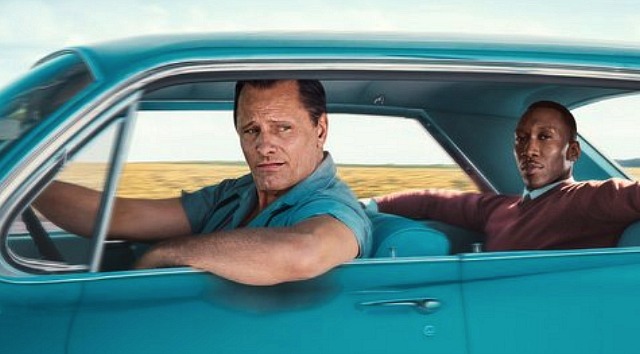After a late September screening of Green Book (Universal, 11.16) I mentioned to a film-critic friend who loves Peter Farrelly’s film as much as I do that film snobs would be coming for it. “Film snobs?” he said derisively, contemptuously.
Last night HE commenter Bobby Peru mentioned a reaction to Green Book, overheard either during the screening or afterward. “And even though I wasn’t one of them, several journalists in the room giggled at the final scene’s embraces,” Peru wrote.
This, to me, is like the first shot fired at Fort Sumter. If I had been there with Peru and if I had suddenly morphed into Jack Nicholson‘s Badass Buddusky, I would have gone up to one of the gigglers and said, “I’m gonna kick your ass around the block for drill, man.” Okay, maybe I wouldn’t have been that belligerent, but Lordy, I hate the snooties.

One of the most reliable indications of a toxic film-snob mentality is a primal aversion to anything that delivers well-fused, well-finessed mainstream-ish elements in service of a familiar but hugely satisfying emotional payoff.
The snobs HATE this kind of thing. Some kind of genetic disorder took over their sensibilities when they hit their mid teens or perhaps when they began college, and they just aren’t susceptible to this kind of assured, emotionally rooted, feel-good thing, even one that unfolds within a disturbing social context. They recoil and flick their fingers and go “no, no…too emotionally effective…not for us.”
And so Peru, totally and irreversibly in the tank for A Star Is Born, mentions dismissals of the film’s final line and final embrace. But the crowd I saw it with at Toronto’s Elgin theatre LOVED that final line. They loved the film. They cheered it like drunken fans of a home-town hockey team. My older son Jett and his wife Cait “LOVED” Green Book whey saw it a week ago, he told me.
This is war, I’m telling you — the film snobs and the gay-culture-favoring Star Is Born-sies on one side, and the fraternal, warm-hearted Green Book worshippers on another.
Don’t overlook the gay culture subtext. Yes, that remark may initially sound curious as both films are pro-gay narratives and experiences. The difference is that while Green Book deals with an admirable gay character from the mid 20th Century who’s something of a stuffed shirt, A Star Is Born is gayer in a more modern and celebrative sense.
Farrelly’s film may be experiencing (or may experience later this month) a certain subliminal pushback from certain fellows who’d rather not immerse themselves or otherwise submit to the early ’60s experience of Don Shirley — a brilliant jazz pianist, as expert and gifted in his realm as James Baldwin was in his, living in a repressed era and relying on his considerable dignity to cope on a daily basis with the double yoke of being black and gay.
Boiled down to basics, the Born-sies will offer respect and curt salutations to Green Book, but they don’t want to “go there”, which is to say they don’t want to live in it. They want to keep it at a distance, and I guess you can’t blame them.
Peru asserted that Green Book “is not a contemporary parable and don’t try to make it one…it’s a simple, feel-goody story of friendship and that’s that.” I understand how gay guys might be uncomfortable returning to and re-contemplating the bad old homophobic days, even for a couple of hours and even if it’s a true story. They just don’t want to return to that ugliness, and to a story that happened seven years before before Stonewall. They prefer the 21st Century emotional comfort-blanket security of being Lady Gaga swooners.
But Peru is dead wrong and dead blind if he thinks Green Book isn’t a contemporary parable. Call it an emotional balm or a counter-legend or an oppositional myth, but I haven’t settled into such a wonderfully soothing, anti-racist, anti-Trumpian film in a long, long time.
In the same thread Variety‘s Kris Tapley called Green Book “a 25 year-old movie.” Yes, Green Book could have been made in the ’90s or even the ’80s, but Shirley’s gayness probably wouldn’t have been used in these older versions. I’m not saying Farrelly and his co-creators were doing anything but telling an early ’60s tale as best they could, but they’ve nonetheless made a parable that addresses the manifest Trumpian ugliness. For two hours it feels wonderful to slip into the fraternal cocoon of this film. I suspect that others, many others, will feel the same.

